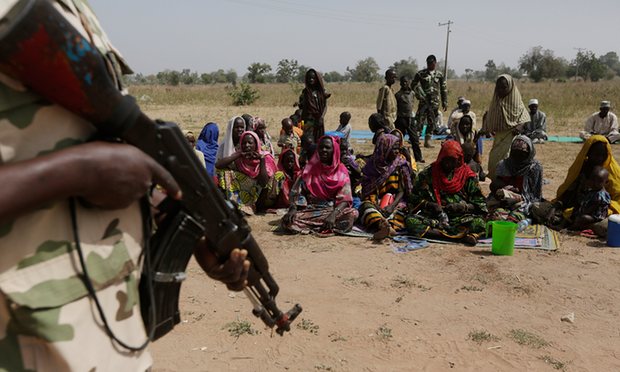Disasters linked to climate can increase risk of armed conflict. Research found that 23% of violent clashes in ethnically divided places were connected to climate disasters

Climate-related disasters increase the risk of armed conflicts, according to research that shows a quarter of the violent struggles in ethnically divided countries were preceded by extreme weather. The role of severe heat waves, floods and storms in increasing the risk of wars has been controversial, particularly in relation to the long drought in Syria. But the new work reveals a strong link in places where the population is already fractured along ethnic lines. Previous work has shown a correlation between climate disasters and fighting but the new analysis shows the disasters precede the conflict, suggesting a causal link. Experts have warned that an increase in natural disasters due to global warming is a “threat multiplier” for armed violence. The scientists behind the new research say it could be used to predict where future violence might flare, allowing preventative measures to be taken. “Armed conflicts are among the biggest threats to people, killing some and forcing others to leave their home and maybe flee to faraway countries,” said Prof John Schellnhuber, director of the Potsdam Institute for Climate Impact Research in Germany and one of the research team. The combination of climate disasters and ethnic tensions make an “explosive mixture,” he said. “People have speculated about climate links with conflict: some people say yes, some say no. But we find a really robust link,” Schellnhuber said. “Economic and social disruption caused by climate disasters are in general not significantly linked to the outbreak of armed conflict, except in one class of countries or regions: where you have pre-fracturing by ethnic difference. The analysis also shows clearly the shock proceeds the conflict era and so this is the first step to unravel the causal tangle involved in this environment-conflict relationship.” The research, published in the Proceedings of the National Academy of Sciences, found that 23% of the armed conflicts in ethnically divided places were linked to climate disasters, compared to just 9% of all armed conflicts. Schellnhuber speculated that ethnic divisions might mean that the impact of a climate disaster would disproportionately impact one group more than another, due to their location or poverty level. “People immediately start scapegoating then,” he said.

